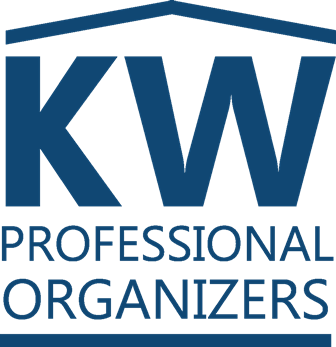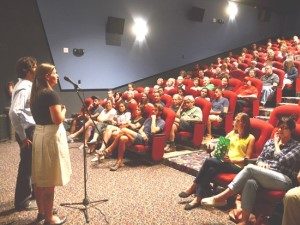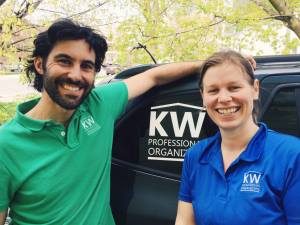
I want to share with you what I discovered reading a book that Family & Children Services of Waterloo Region shared with me called FASD: Strategies, not Solutions.
Less is more.
All the recommendations and strategies for how to set up your living spaces were based on the principles of “Less is More.” This fascinated me because I believe so passionately that many of us suffer from too much stuff.
“When considering how to decorate your home, think ‘less is more’. This means less noise, people, stuff, activity, etc.. It also means absolute order and always keeping things in the same place.”
My Hypothesis
The content that this book was sharing was so compelling that I considered researching more books on other common afflictions like ADD/ADHD (attention deficit disorder, attention deficit hyperactivity disorder), Autism, and Spectrum disorders. The research all uncovered the same thing. All of the books confirmed my hypothesis: that Organization, Minimalism, Time Management, and building systems for storing items are among the leading strategies for fostering successful people.
“At school and at home, model calendar keeping, list making, and other memory-enhancing strategies.”
What is Success?
In a society where many consider the consumption of goods to be a sign of success, consider asking yourself if you are overwhelmed in your spaces? I would argue and agree with the strategies that less is more, less is success.
“Clutter may be one of your worst enemies. It wastes time and energy because it prevents you from getting organized, finding things, and meeting deadlines.”
Home Organization
Dr. Temple Grandin who is a noted author, speaker and cited expert promotes that these organizational strategies and “life skills” start at a young age. She writes, “If a child was never expected to contribute to family chores, they are ill prepared psychologically or practically to suddenly take on this role. In fact, they are likely to resent and avoid it.” A compelling argument that in fact learning how to manage our own environment is a life skill that leads to contentment and success.
Bibliography
- Child and Youth Working Group, The. FASD: Strategies, not Solutions. Alberta: Alberta Children’s Services, 2007.
- Bolick, Teresa. Asperger Syndrome and Adolescence: helping preteens and teens get ready for the real world. Glouscester: Fair Winds Press, 2001.
- Carole, Jacobs, and Wendel, Isadore. The Everything Health Guide to Adult ADD/ADHD: Expert advice to find the right diagnosis, evaluation, and treatment. Avon: F+W Media, Inc., 2010.
- Grandin PhD, Temple, and Moore PhD, Debra. The Loving Push: How parents and professional can help spectrum kids become successful adults. Texas: Future Horizons Inc, 2015.
Cure your clutter, live your life
Receive our weekly newsletter for support and tips for getting organized.
Hit "JOIN" to add your name and email
15,356 Students are already changing their lives by watching our online courses. Join the most empowered group of learners today!
We offer a 30 day money back guarantee, so joining is Risk-Free.



